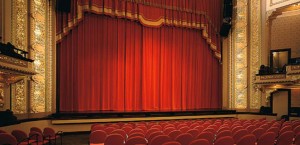 Fire Island, by Charles Mee, is the current offering at Epic Theatre Company. Directed by Kate Lester, this Rhode Island premiere explores the ups and downs of various couples as they spend a weekend on Fire Island.
Fire Island, by Charles Mee, is the current offering at Epic Theatre Company. Directed by Kate Lester, this Rhode Island premiere explores the ups and downs of various couples as they spend a weekend on Fire Island.
The Fire Island script is cinematic and poetic. Mee, a current playwriting professor at Columbia University, has an experimental style. On his website, the (re)making project, Mee states, “There is no such thing as an original play.” To create art, Mee reconstructs and takes inspiration from found texts. This process gives his writings a collage-like feel.
In 1996, Mee launched the (re)making project, which contained full scripts of his body of work. He believes his plays should be accessible to everyone, especially young playwrights. Mee invites aspiring writers to splice and create original work influenced by his own. He also encourages playwrights to use text from the Greeks, Shakespeare and Brecht as well as Soap Opera Digest and the evening news.
Mee’s laissez-faire attitude on text lends itself to his views on how and where his plays are performed. He does not want his plays to be constricted to the stage, but also to be performed for the film and internet.
Epic Theatre Company’s production of Fire Island is interactive. Lester attempts to transform the Hope Artiste Village into an island resort. The actors enter from the audience and also blend in as bystanders. The actors lead the audience through the performance space, and this choice has its disadvantages. First, the staging lacked a clear direction and seemed unfocused at times. The audience follows the actors up the hallway and once the entrance is reached, the route is retraced back to the other side of the building. Each nook and cranny of the Hope Artiste Village did not offer anything new to the play. Except for a few café tables or tropical shirts, I forgot I was supposed to be on an island.
The staging was also distracting. People who were not involved in the play or part of the audience walked through the middle of important scenes. For example, in one scene, a character tells the story of murdering her family. Unfortunately, this dramatic scene took place next to the restrooms. The custodian was cleaning the bathrooms during the character’s monologue, and as a result, the monologue was punctuated by the occasional toilet flush. Although Mee’s work encourages experimentation, the attempt to have interactive staging, although admirable to try something new, just doesn’t work.
After the show, I learned that the production was originally going to be performed outside, but was changed due to weather concerns. I think an outdoor environment would have suited the play better.
I did enjoy producer Kevin Broccoli’s utilization of music during the play. He trailed the edge of the audience with an iPod blaring pop music during the scene changes.
The actors were inexperienced. The men of the cast especially delivered many of their lines in one level. Luckily, the actors might have the opportunity to gain experience in future shows for Epic.
Mee said, “I like plays that are not too neat, too finished, too presentable. My plays are broken, jagged, filled with sharp edges, filled with things that take sudden turns, careen into each other, smash up, veer off in sickening turns. That feels good to me. It feels like my life. It feels like the world.” Life is not perfect and neither is this play. It’s messy and its cracks are showing.
Recently, Epic Theatre Company joined Mixed Magic Theatre and The Contemporary Theatre Company to form The Rhode Island Theatre Alliance (RITA). The dialogue show, This Might Be It, written and directed by Broccoli, is premiering in early July.
Fire Island plays through June 22 at the Hope Artiste Village.
